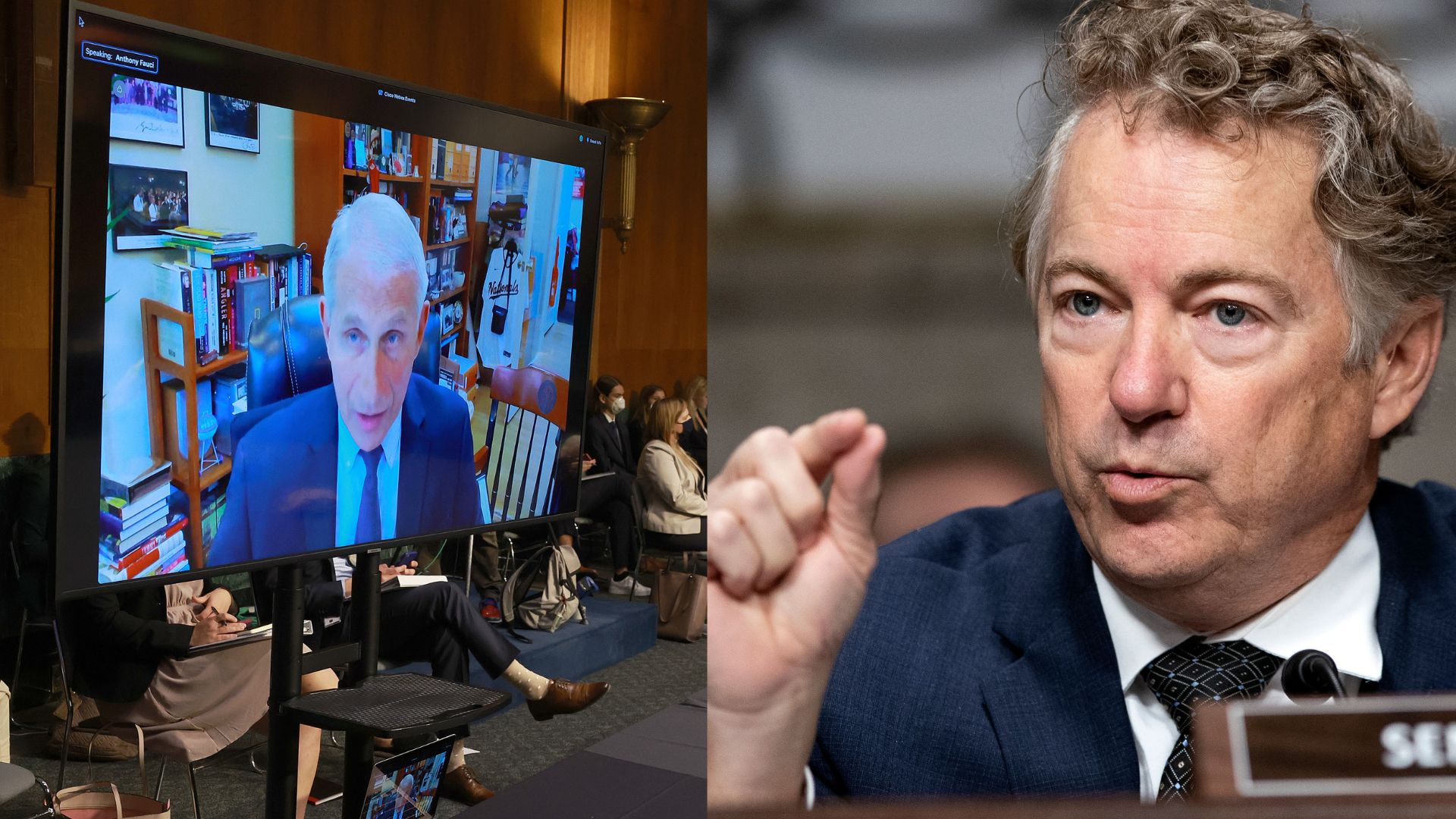An often alleged arrangement but difficult to prove within the smoky layers of bureaucracy. Is or was Dr. Anthony Fauci, the government’s highest-paid employee, also collecting “royalty payments” from private companies which he also oversaw in his position at the National Institute of Health?
Sen. Rand Paul, an ardent Fauci critic, got the doctor on record today during some zoom testimony and the results are truly something to behold.
Paul’s question on royalty payments was pretty straightforward and designed for a simple “yes” or “no” response:
PAUL: “Can you tell me that you have not received a royalty from any entity that you ever oversaw the distribution of money in research grants?”
USA – Sen. Rand Paul v Fauci
27,900 anonymous royalty payments totalling $193m were made to 1800 NIH employees.
SEN – “Have you ever received a royalty payment from a company that you later oversaw money going to that company?”
FAUCI – “I don’t know”— Bernie's Tweets (@BernieSpofforth) June 16, 2022
FAUCI: “Um, well, first of all, let’s talk about royalties…”
What is wrong with this picture where government employees get to shield themselves behind redacted paperwork about how much money they receive personally from private companies they may be overseeing?
Fauci goes on to say “ya know, I don’t know, but I doubt it,” then he explains that he has collected royalties. A very muddled answer.
“I doubt it” doesn’t cut in a courtroom, boardroom, or a Congressional hearing room, especially after admitting that he has collected money in the past.
The question is not new with regard to government employees at the National Institute of Health. There are millions of dollars, hundreds of millions of dollars, in fact, floating around in federal grant money.
The opportunity for influence between private entities seeking grants and research money and the government scientists, like Dr. Fauci, that decide on who gets funded creates a serious ethical chasm that was brought to light in 2005:
In 2005, following an Associated Press investigation into the royalty payments, the NIH expressed concern due to a potential conflict of interest.
Even Dr. Fauci “said that he felt it was inappropriate to receive payment and donated the entire amount to charity,” according to the NIH.
It wasn’t until after the AP investigation that the NIH created a policy to disclose the payments.
But when people wanted to gain access to them, the NIH pushed back until it was forced to hand the records over.
In October 2021, watchdog group Open The Books filed a federal lawsuit to obtain access to the disclosures. But once they received them, critical information had been redacted, such as who the payments came from and how much was doled out.
So even though a government watchdog group won the lawsuit, all information provided by the NIH with regard to royalty payments was redacted. How does a government agency get away with hiding such information from sitting United States Senators let alone the general public?
In his exchange with Paul, Fauci reiterated the fact that royalty payments don’t have to be disclosed, but between 2015 and 2020, he claims he didn’t collect much:
“According to the regulations, people who receive royalties are not required to divulge them even on their financial statement, according to the by Bayh-Dole Act,” Fauci responded. “So let me give you some example, from 2015 to 2020 I – the only royalties I have was my lab and I made a monoclonal antibody for use in vitro reagent that had nothing to do with patients. And during that period of time, my royalties ranged from $21 a year, to $7,700. And the average per year was $191.46.”
Note the date range that Fauci specifically mentions. The five-year period from 2015 to 2020. We wouldn’t know if he’s being honest, of course, since it’s redacted and the NIH won’t fully account for it. Fauci did not talk about any royalty money he received in 2021 or into 2022 from any companies involved in Covid-19 vaccine development.
Once again, the government health bureaucracy covers itself and individuals like Dr. Fauci seem far more interested in their own power and self-enrichment than they do in the genuine practice of medicine.
Donate Now to Support Election Central
- Help defend independent journalism
- Directly support this website and our efforts
